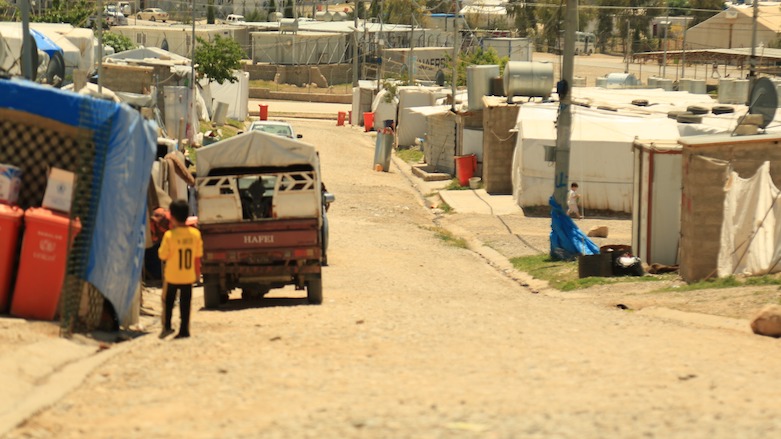Sinjar agreement should be implemented soon: ICG

ERBIL (Kurdistan 24) – Baghdad and Erbil should implement the governance, security, and reconstruction provisions of the Sinjar agreement as soon as possible, the latest International Crisis Group (ICG) report said on Tuesday.
The ICG warned that as “time passes without a workable arrangement for governing and securing Sinjar, the incentives for displaced Sinjaris living in squalid camps to come home are diminishing.”
In an earlier report, the Norwegian Refugee Council (NRC) said that “the widespread destruction of civilian houses, new clashes, and social tensions are stopping two-thirds of displaced families from returning to Sinjar.”
Read More: Property damage prevents the return of Sinjaris: NRC
The ICG said that the urgent necessity of fully implementing the agreement became clear in May when clashes broke out between the Iraqi Army and the YBȘ (Sinjar Resistance Units) in one of Sinjar’s sub-districts. Those clashes displaced 1,000 families to the Kurdistan Region and a smaller number to Mount Sinjar.
“While such confrontations seem to come and go, they lay bare an unaddressed challenge, which is the fate of the YBȘ, which, though it is affiliated with an external group, the PKK (Kurdistan Workers’ Party), consists itself of Sinjaris, ie, Iraqi citizens who have legitimate local concerns,” the report said.
“This file thus deserves sensitive treatment, not the army’s resort to a hammer whenever it spots a crooked nail.”
The Sinjar agreement was signed between the Government of Iraq and the Kurdistan Regional Government (KRG) in October 2020. Its purpose is to restore and normalize the situation in the Yezidi-majority region and remove the various armed groups that continue to operate in it.
But so far, it has not been implemented.
Read More: KRG and Baghdad reach administrative, security agreement on Sinjar
Therefore, the ICG called on Baghdad and Erbil to “remedy their failure when striking the deal to secure buy-in from Iraqi armed groups on the ground by consulting them and Sinjari civil society representatives on how to make it work,” the report said.
The ICG also said, “escalating violence risks drawing the district further into the power struggle between Turkey and Iran.”
Turkey opposes the YBȘ presence in Sinjar and continues to carry out airstrikes against the group.
“These attacks have become a regular feature of an already precarious security environment,” the ICG said.
The ICG said the Iraqi government should appoint an acting mayor for now by consulting closely with both the authorities in Erbil and Sinjar community leaders “to identify a suitable, politically non-aligned, Yazidi from Sinjar.”
Moreover, on the security front, the ICG said the Iraqi government should “shift away from its combative approach, engaging directly with the YBȘ about challenges like standing up a local police force and seeking to integrate its fighters (and other armed group members) into state forces.”
“The UN Assistance Mission in Iraq could help these measures succeed by sending international civilian observers and technical advisers to oversee the process,” the report concluded.
